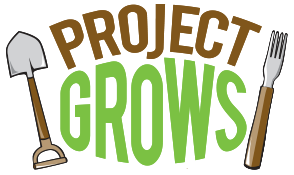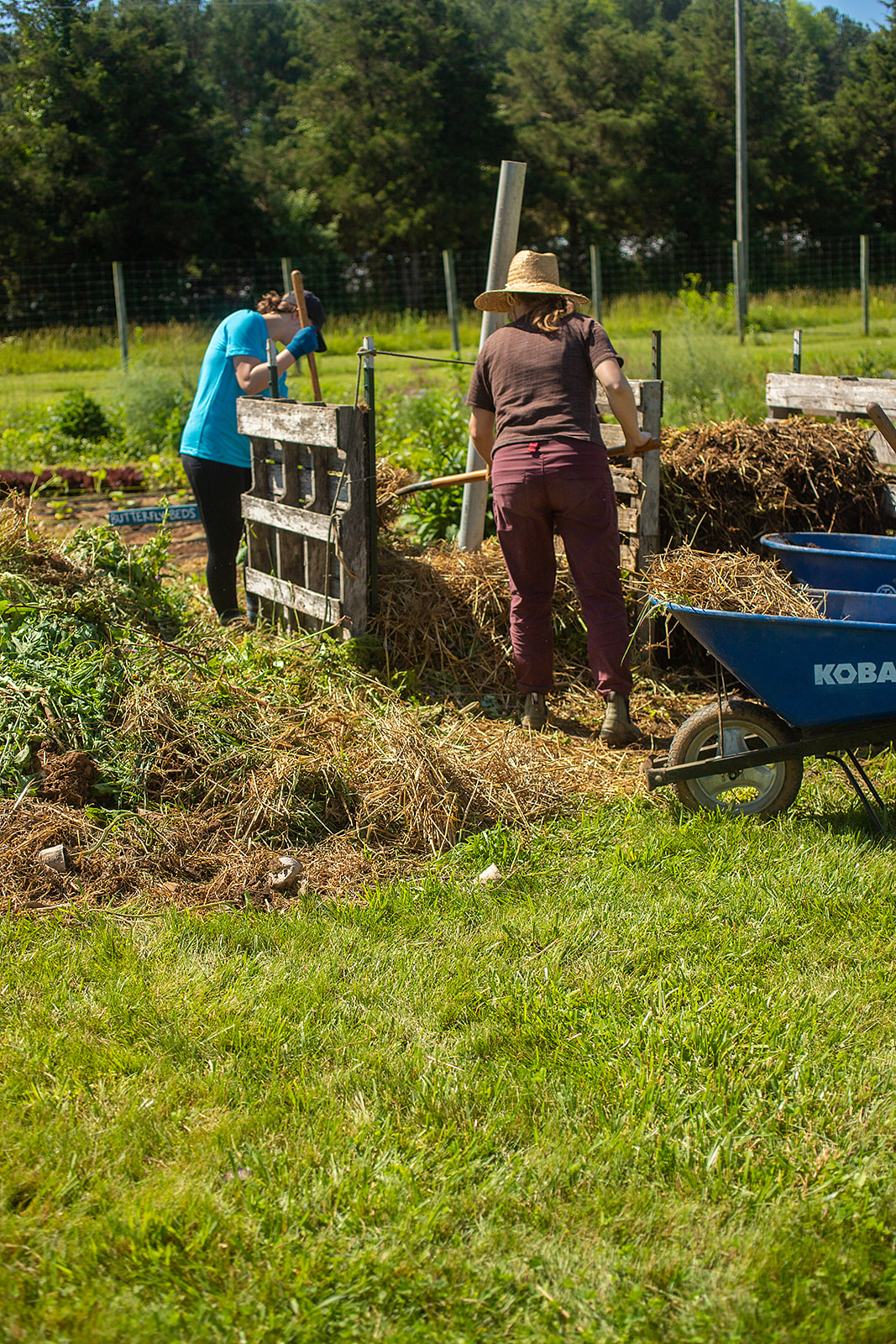By Jenna, Youth Development Specialist 2022
Masters of Counseling graduate student, Eastern Mennonite University
Small groups provide rich opportunities for us to gain a better understanding of who we currently are, who we want to be, and how we can bridge the gap between. Think back to your experiences on a sports team or club; as part of an organizing committee or a member of a creative project; or perhaps even just the experience of being on a professional team at work. The quality of that experience, whether you enjoyed it or not, whether you found yourself expanding as an individual or deflating, often depends on the intention of the program, the goals, and the tone of the leadership involved.
Although the Youth Leaders in Agriculture (YLA) program at Project GROWS is only two years old, there has been clear intent from the very beginning in order to provide a deeply meaningful experience for local high school students interested in exploring a career in agriculture. During this two month program, five high school students get paid to support Project GROWS work while learning the basics of organic farming and getting hands-on experience as a farmer. Not only do Youth Leaders get a real taste of farming but they also work through curriculum that exposes them to important macro and micro components of the agricultural industry such as touring local farms, learning about behind-the-scenes logistics of selling at farmers markets, discussing the implications of monoculture farming practices and the international food industry, as well as how to use the veggies being grown in real time such as learning to pickle.
But even with this full curriculum, Project GROWS recognized that given the recent interruptions of COVID-19, students needed more than lessons on soil biology. These students, who are in a unique stage of development, have had to navigate the dilemmas of social isolation as school moved from in-person to online learning. Over the past two years, adolescents have relied more heavily on social media to feel connected to others despite the overwhelming evidence that shows the negative, long term effects of such platforms. During a time when our social groups have the most impact on the development of our sense of identity and belief systems, most adolescents nationwide were left with little to no in-person experiences with people outside of their immediate families.
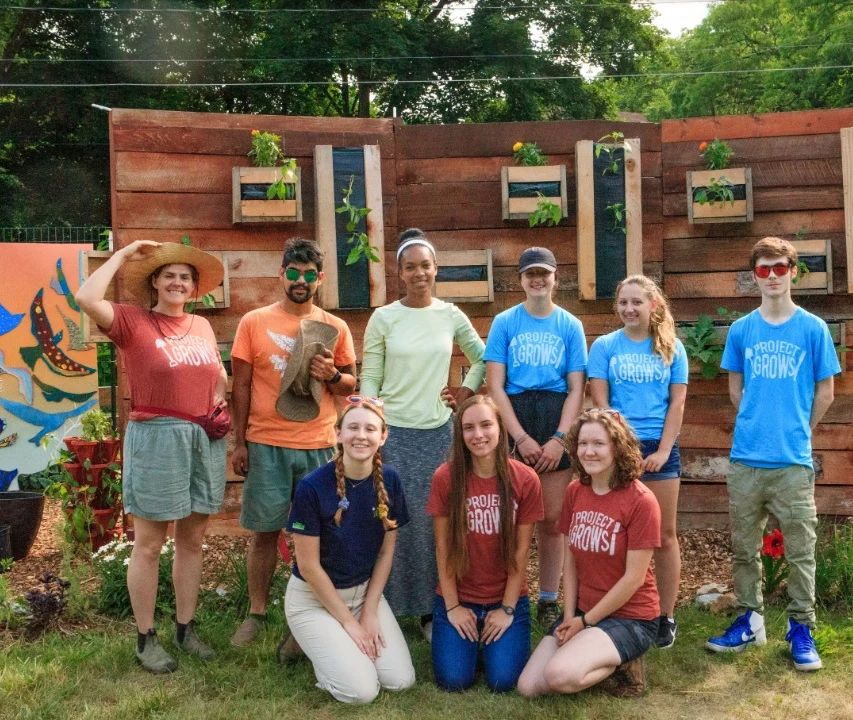
-In an attempt to provide the most well-rounded program possible given the unique social barriers adolescents have faced over the past few years, Project GROWS created a Youth Development Specialist this season—a new position that works to expand the social-emotional capacity of the Youth Leaders in order to best prepare them for the inevitable launch into the “real” world. A large part of the YLA program has to do with supporting students as they decide their next steps after graduation and yet we as a larger nation are not good at offering the practical social and emotional skills necessary to do so.
As the Youth Development Specialist this summer, I facilitated activities with the Youth Leaders to cultivate self-reflection and social connection while offering developmentally appropriate psychoeducation. For example, weekly journal prompts encouraged students to reflect on their experiences at Project GROWS in a way that helped them identify their strengths and areas of growth. We would then gather as a small group to share and discuss our reflections so that we knew how to best support one another throughout the program. Sometimes this looked like creating more opportunities for public speaking, trying to move beyond our social anxieties and welcome new visitors on the farm, or being more vulnerable during group discussions.
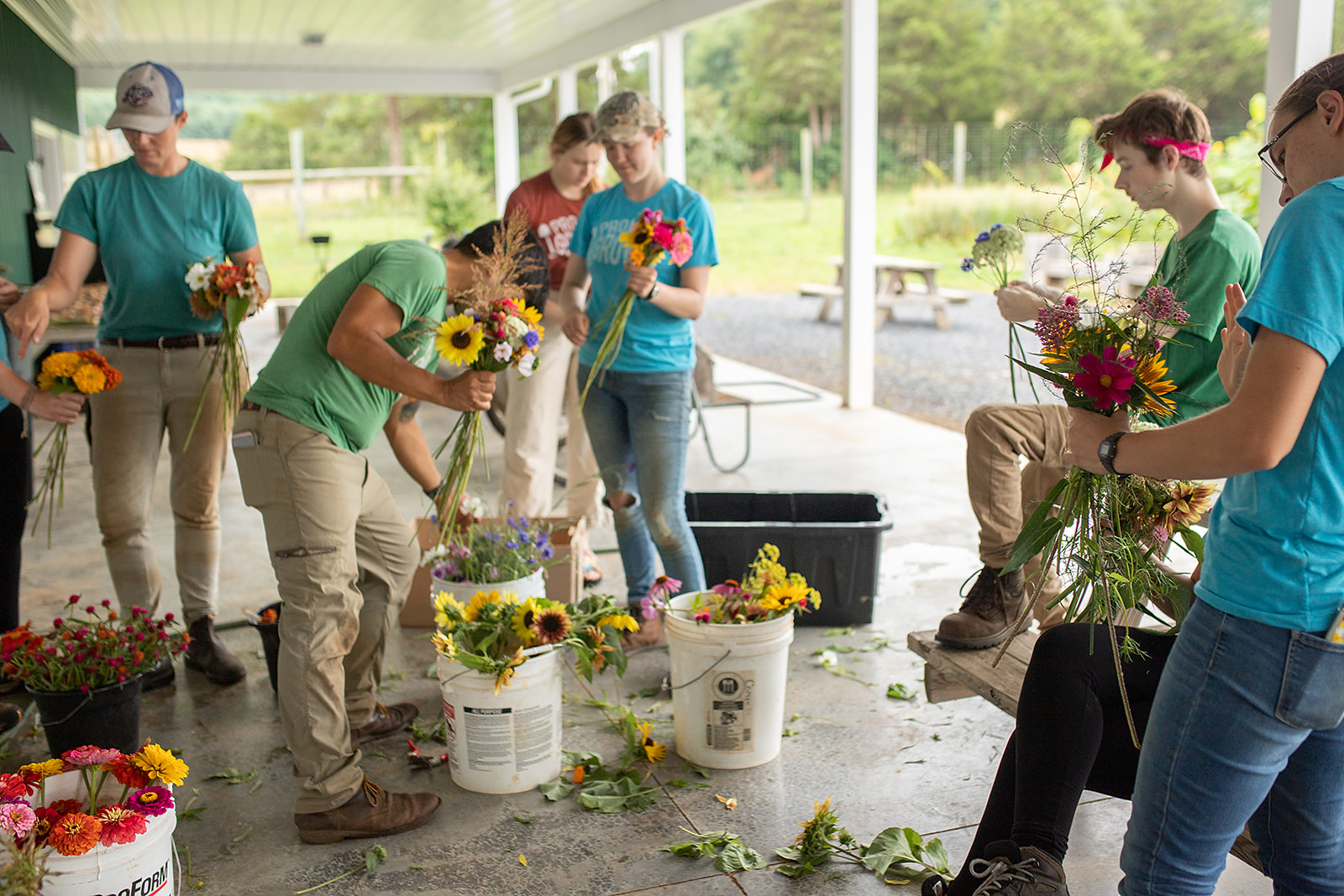
We also spent time practicing “passive” meditation in which we focused on the senses of the body to expand our awareness of our surroundings and internal landscape. Nature is the perfect backdrop for such practices and with bare toes in cold water, we focused on expanding our awareness, noticing the things around us that our busy minds had not allowed us to appreciate beforehand such as the sounds of the birds, the light breeze on our backs, or the smell of the creek’s moss surrounding us. A major goal of these moments of stillness was to practice the process of simply being in our bodies so that we could then learn to identify the various physical sensations that often come hand in hand with our emotions. What does anxiety feel in my particular body? How does it differ from the feeling of excitement? What cues is my body giving me that I can tune in to to help me know when it’s time to take a break on a hot summer day on the farm? Before we can create the opportunity to choose to react differently when strong emotions arise, we must first learn to identify them and before we can identify them, we must be able to connect with our bodies.
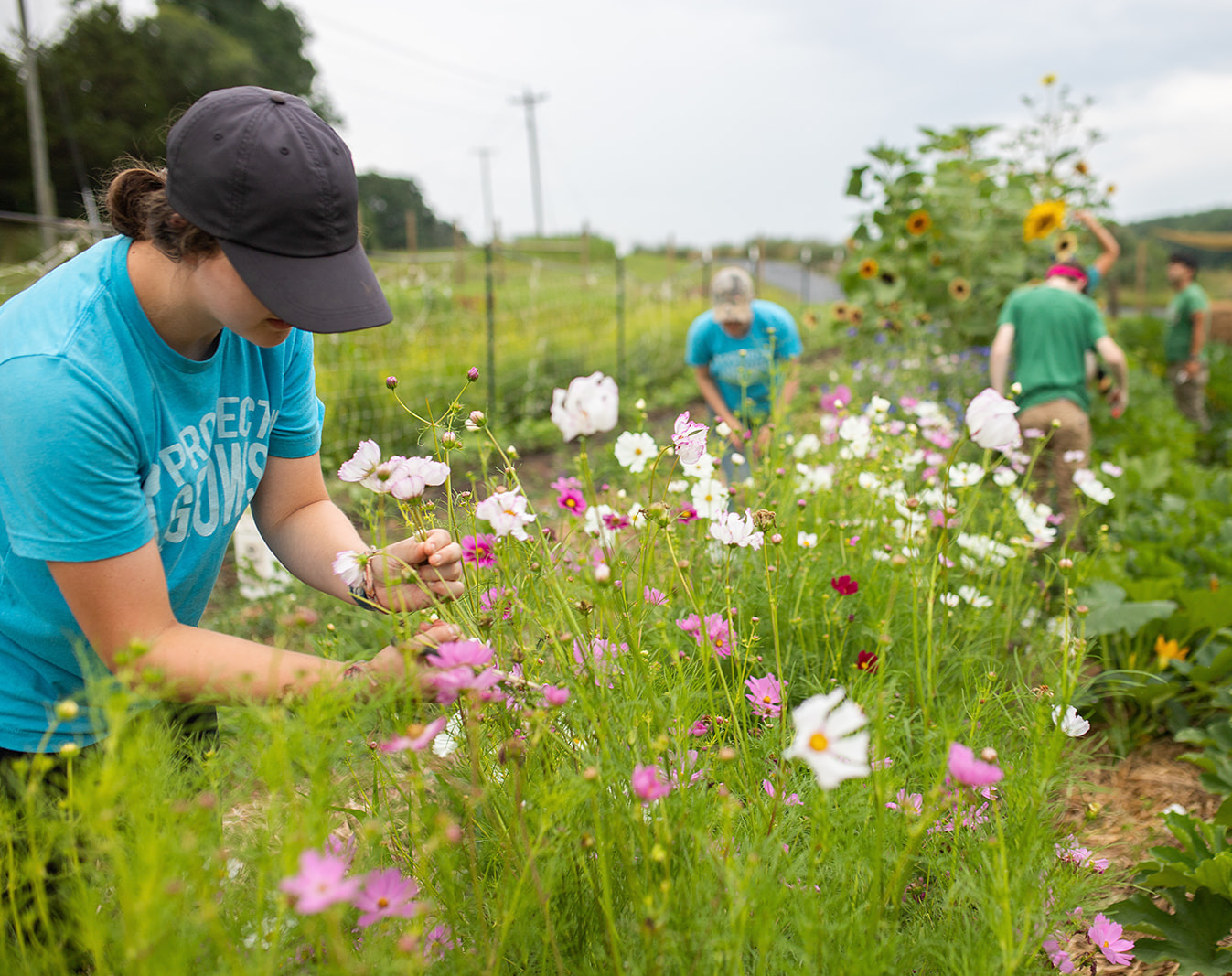
A third core component of my work this summer was encouraging playful creativity as a group through the use of activities from MIMA (Modern Improvisatory Music Appreciation) and Theater of the Oppressed “gamesercizes”. These models, designed specifically for groups, use accessible tools such as the voice, rhythm, and the body to not only express ourselves but to create moments of group cohesion and connection. From an outside perspective, these activities may seem silly, even distracting from the work of the farm but in reality, these “games” provided the opportunity for the valuable, in-person connection that we’ve all missed over the past two plus years. When participating in creative group activities, we’re opening ourselves up to social connection through the practice of creative vulnerability. We learn to “listen” to others with our senses and we get to practice holding the natural feelings of discomfort that often arise with such activities. If we can, together, push through feelings of awkwardness, what’s often awaiting us on the other side are deeply meaningful experiences of collective attunement. And when we feel connected to others, we experience a sense of belonging and resiliency that can carry us through the inevitability of the challenging experiences and chapters of our lives.
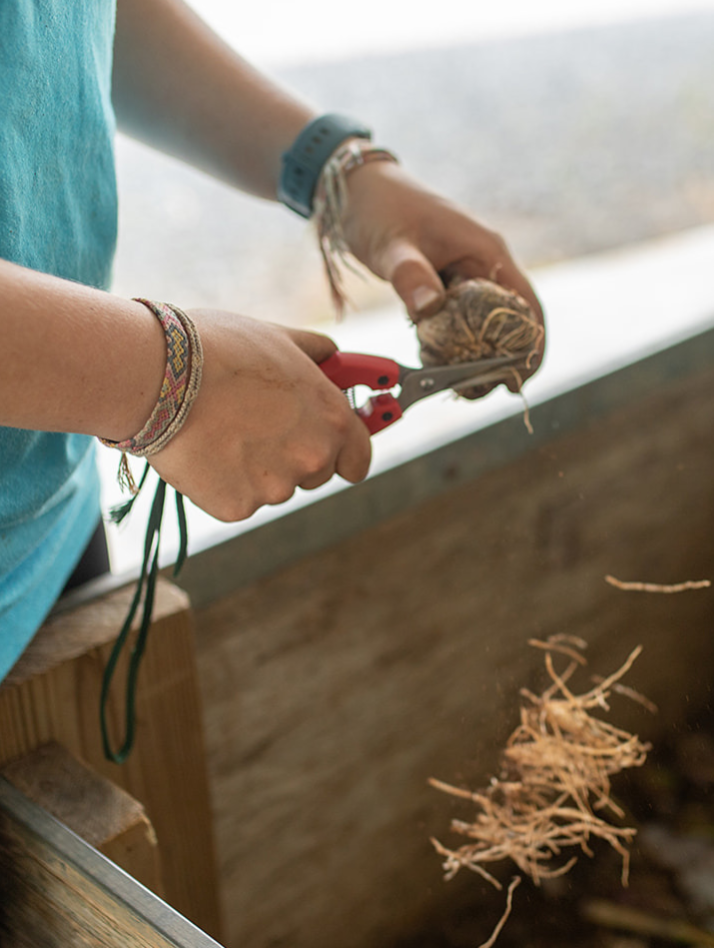
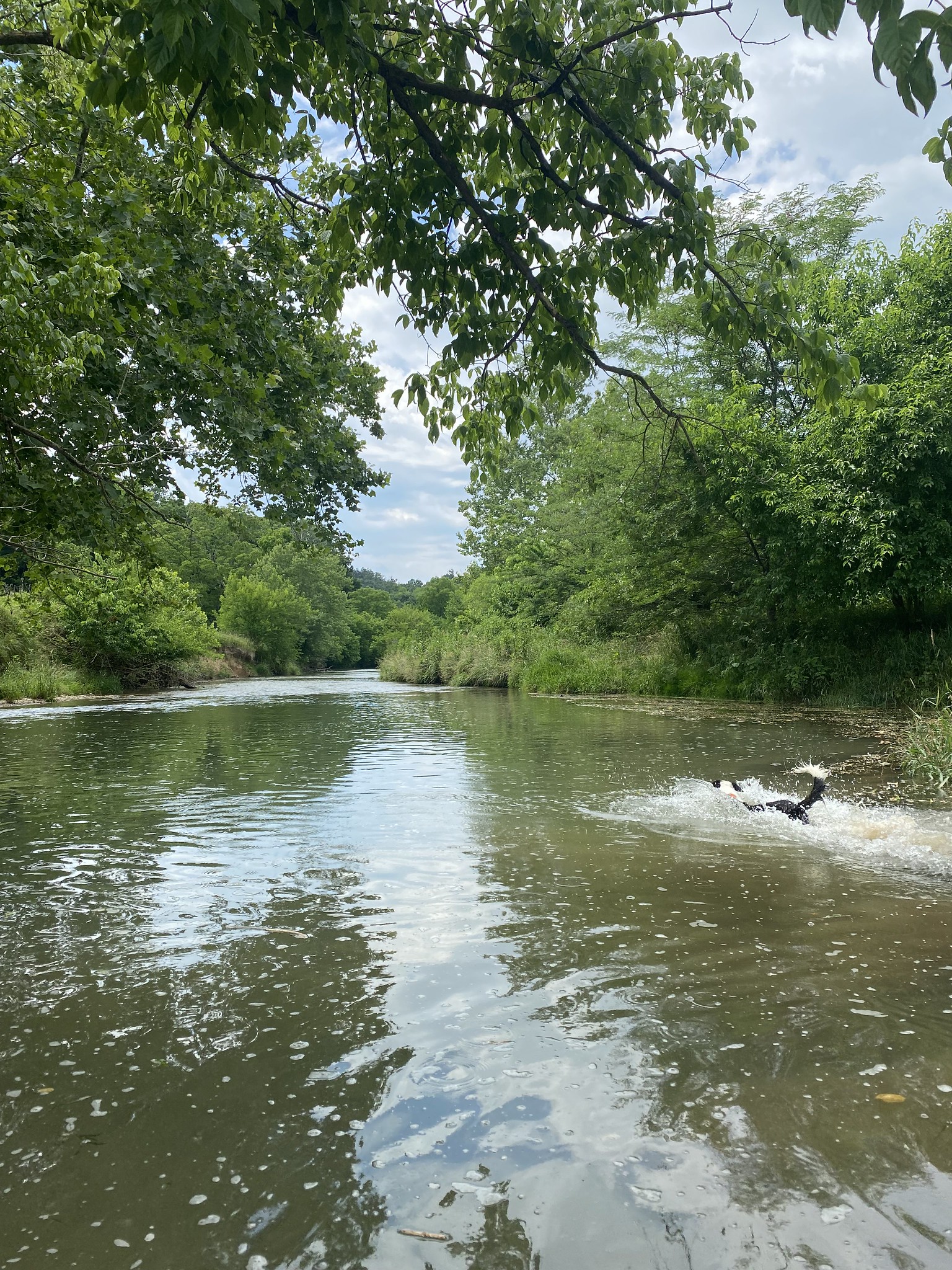
While providing vocational direction in agriculture remains a strong priority of the program, I’ve been grateful to be a part of an effort to specifically support the social and emotional needs of this unique group of students using the ever-inspiring background of the sacred land we live on. Although the YLA program continues to change and evolve, just like the plants sown at Project GROWS, we recognize the powerful potential this program offers for the specific needs of local youth in the Staunton, Waynesboro and the wider Augusta community. By tending to this up-and-coming generation in an emotional and social capacity, we are preparing students to take their place as empowered individuals in whatever direction they choose to follow. My biggest hope is that through this two-month program, these five students will recognize their value and the power of their voice in shaping our world for the better.
